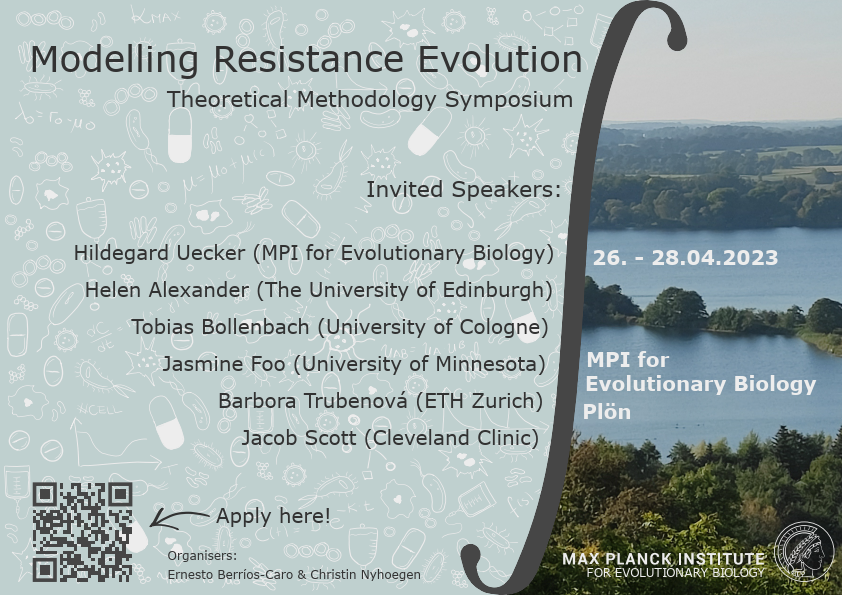Speaker
Description
Stochasticity affects several steps in the evolution of resistance. The appearance of resistant types by mutation or transfer of resistance genes from a source population is a stochastic process. Once resistant types have appeared, they might suffer stochastic loss while rare. During the infection, bottleneck events can lead to further randomness in the dynamics of resistant pathogens. Finally, to persist at the level of the host population, resistant pathogens need to spread to new hosts, which again involves stochasticity -- host encounter (or whatever transmission route is relevant) is not guaranteed, and even if hosts meet, pathogens need to go through a potentially narrow bottleneck and establish a new infection. In this talk, I will present a general and flexible framework based on branching process theory to study aspects of stochasticity at various points on the path to resistance. I will apply it to several scenarios such as the transfer of resistance plasmids from commensals to pathogens or the spread of resistance in a host population.

